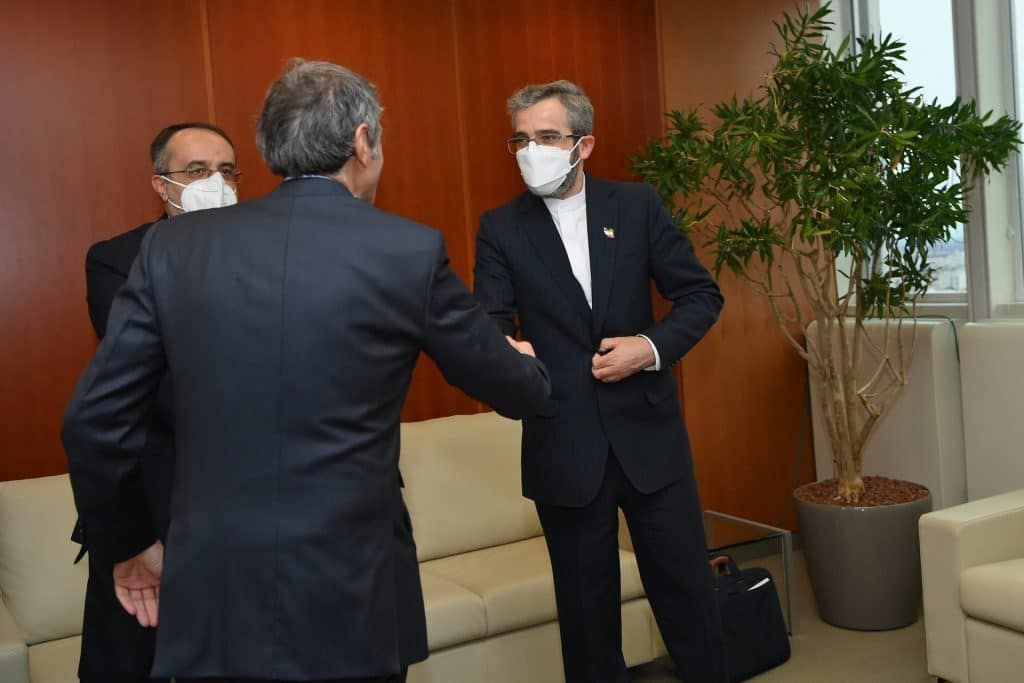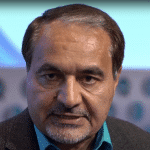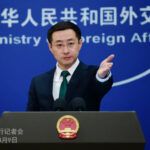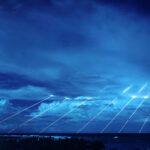Two steps to revive—and sustain—the Iran nuclear deal
By Seyed Hossein Mousavian | December 7, 2021
 Rafael Mariano Grossi, IAEA Director-General, welcomes Dr. Ali Bagheri Kani, Vice-Minister of Foreign Affairs of the Islamic Republic of Iran, and his delegation upon their arrival at the Agency headquarters in Vienna, Austria. 2 December 2021. Photo Credit: Dean Calma / IAEA. (CC BY 2.0)
Rafael Mariano Grossi, IAEA Director-General, welcomes Dr. Ali Bagheri Kani, Vice-Minister of Foreign Affairs of the Islamic Republic of Iran, and his delegation upon their arrival at the Agency headquarters in Vienna, Austria. 2 December 2021. Photo Credit: Dean Calma / IAEA. (CC BY 2.0)
Iran and the world powers met last week in Vienna for a new round of nuclear deal talks, known formally as the Joint Comprehensive Plan of Action or JCPOA. The meeting, which Iran’s top negotiator Ali Bagheri Kani deemed “fruitful,” is scheduled to resume on Wednesday. But such optimism about the negotiations stands in stark contrast to the West’s pessimism.
“I think it’s probable that this round of negotiations … does not succeed,” French President Emmanuel Macron told reporters in Dubai.
“Tehran is walking back almost all of the difficult compromises crafted after many months of hard work,” European diplomats noted.
The United States is preparing “for a world in which there is no return” to the Iran nuclear deal, a US official said.
“Iran nuclear talks head for collapse,” the New York Times wrote simply.
Iran had been in full compliance with the nuclear deal’s terms and conditions until Donald Trump withdrew from the deal and reimposed economic sanctions. In response, Iran gradually reduced its commitments to the deal. From the Iranian perspective, reviving the JCPOA means that all sanctions imposed by Trump must be lifted in a verifiable manner, such that it receives dividends—and not just on paper. In return, Iran would fulfill all of its obligations under the agreement. Tehran seeks assurance that the United States will not violate its commitment again. Yet US officials cannot guarantee this as they do not have the power to limit their next president’s decisions. What’s needed now is not only a revived nuclear deal but a plan for it to endure.
Bagheri told Al-Jazeera that the non-American parties principally endorse the need for guarantees and verification and that “the Americans must also accept.” Bagheri stressed that Iran has outlined a proposal for providing the guarantees and a verification mechanism for lifting sanctions and offering reparations.
Part of the problem is that the parties that need to compromise—the United States and Iran—do not correspond directly with each other. Instead, they communicate via the Europeans involved in the JCPOA, which means that some correspondence is imprecise.
Iranians like to say that when a madman throws a stone into a well, 100 wise men will not be able to retrieve it. Trump tossed such a “stone” with his unprecedented, inconvenient withdrawal from the JCPOA that led to the current, difficult impasse. When he withdrew and violated UN Resolution 2231—the formal JCPOA agreement—he imposed more than 1,500 sanctions on Iran, half of which were nuclear in nature, while the remaining related to terrorism, human rights, and other concerns. In response, Iran reduced its commitments to the nuclear deal. First, the country increased uranium enrichment to 20 percent and then to 60 percent. Following, it produced uranium metal—an ingredient for nuclear weapon development—after which it activated advanced centrifuges that brought it closer to the status of a nuclear threshold state. Many Americans and Israelis have since concluded that Trump’s departure from the nuclear deal was a catastrophic mistake.
President Raisi’s agenda for economic growth and development in Iran will be hampered if the economic sanctions that Trump imposed are upheld. While President Biden’s negotiating team has indicated that it is open to lifting many sanctions, it is unlikely to lift all sanctions imposed during Trump’s era. Moreover, the Biden administration faces the same problem that the Obama administration faced when attempting to lift economic sanctions “correctly.” During the Obama administration, Iran did not reap the full economic benefits of the nuclear deal to which it was entitled because of primary sanctions imposed by the United States. Similarly, US calls for global businesses to restore ties with Iran in the aftermath of a current nuclear deal may again fall flat if risk-adverse businesses fear triggering US primary sanctions.
The Biden administration should take note that the Iranian economy suffered a $1 trillion loss as a result of Trump’s withdrawal from the nuclear deal. This amounts to the gross domestic product of an emerging economy such as Mexico. The Raisi administration learned the hard way—through experience—about this kind of massive economic loss. It will now do whatever it can to prevent such a loss in the future.
In short, the world powers and Iran should articulate a sustainable implementation plan for the nuclear deal—one that allows both sides to fulfill their commitments moving forward without interruption. To revive and sustain the Iran nuclear deal, negotiators might consider two clear (if not simple) steps.
First, all parties should uphold their JCPOA obligations. This means that the United States and other world powers should lift all sanctions imposed on Iran based on the nuclear deal’s parameters, and Iran should resume meeting its full JCPOA obligations.
Second, the UN Security Council should adopt a new resolution mandating that all nuclear deal parties and all UN member states implement UN Resolution 2231—the formal JCPOA agreement—completely, correctly, and without discrimination. The new resolution could establish a special international court to address differences between Iran and the United States in the nuclear deal’s implementation. Moreover, the resolution could establish an escrow security fund to compensate potential damages caused by breach or non-performance by one or more parties. After all, 100 wise men might agree that a revived nuclear deal that is destined to fail would not be much of a deal at all. But a revived nuclear deal built to endure, well, that would be cause for optimism.
Together, we make the world safer.
The Bulletin elevates expert voices above the noise. But as an independent nonprofit organization, our operations depend on the support of readers like you. Help us continue to deliver quality journalism that holds leaders accountable. Your support of our work at any level is important. In return, we promise our coverage will be understandable, influential, vigilant, solution-oriented, and fair-minded. Together we can make a difference.
Keywords: Iran, Iran nuclear deal, JCPOA, nuclear risk, nuclear weapons
Topics: Nuclear Risk, Nuclear Weapons















Wishful thinking! Mousavian generally reflects the thinking in Tehran which is flawed. Iran doesn’t have a trillion dollars to put in to an escrow account, which they would have to as you propose — in case it is Iran that doesn’t follow through on its commitments; and neither will the other side. Biden doesn’t have the leverage to lift all sanctions. Trump and his team made sure that they classified sanctions under different categories. Iran also cannot hope to go back to the original JCPOA enrichment levels, that train has left the station. Knowledge gained cannot be undone. The only… Read more »